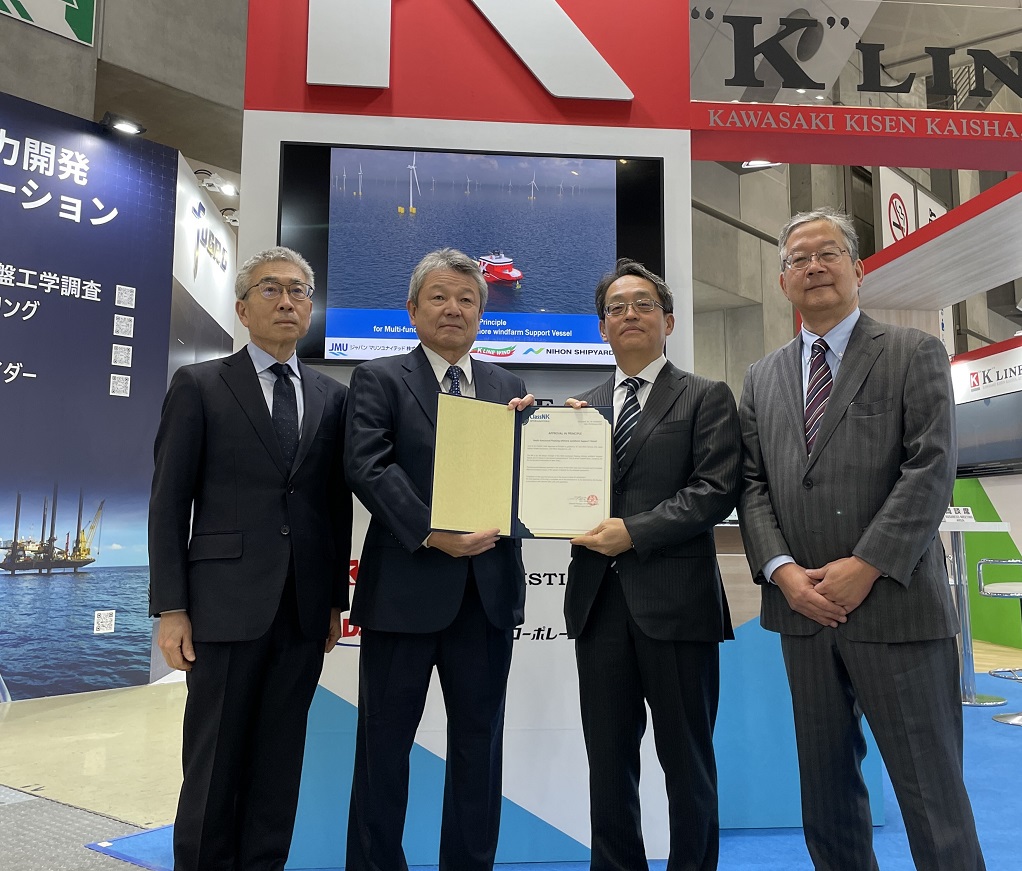ClassNK has awarded an approval in principle (AiP) for the design of a multi-functional floating offshore windfarm support vessel (MFSV) developed by “K” Line Wind Service, Ltd., a joint venture of Kawasaki Kisen Kaisha, Ltd. and Kawasaki Kinkai Kisen Kaisha, Ltd, together with Japan Marine United Corporation and Nihon Shipyard Co., Ltd.
The installation of floating offshore wind turbines requires mooring works by vessels, with the whole mooring system composed of an anchor, a mooring chain, and a fiber rope. The MFSV, developed this time, is designed to perform whole mooring works efficiently for floating offshore wind turbine installation, including “transportation of mooring system”, “deploying mooring system on the seabed”, and “anchor tensioning”. According to the companies, the vessel also features a multi-functional concept, providing various vessel solutions in each phase of offshore wind projects such as “Survey”, “Transportation”, “Construction”, and “Operation & Maintenance”.
ClassNK carried out the design review of the MFSV based on its Part O of Rules for the Survey and Construction of Steel Ships for work-ships and SPS Code, as well as IP Code, which will enter into force from July 2024. Upon confirming it complies with the prescribed requirements, ClassNK issued the AiP.
ClassNK will continue to contribute to the further expansion of renewable energy through its activities as a certification body.
Source: ClassNK.
Tags: AiP, ClassNK, Offshore, Support Vessel



Recent Posts
Hyundai Glovis to Retrofit Seven PCTCs with Avikus AI Navigation System
Super Terminais orders three more Konecranes Gottwald ESP.10 Mobile Harbor cranes
Covestro and HGK Shipping Extend Partnership to 2040 with Focus on Wind-Assisted Vessel Retrofit
Artemis Technologies Successfully Demonstrates 100 Percent Electric Crew Transfer Vessel at Aberdeen Offshore Wind Farm
IACS Council Advances Decarbonisation, Digitalisation and Governance Priorities at C91 Meeting in Beijing
Japan Launches Major R&D Project to Advance Shipbuilding with Alternative Fuels
EU Adopts Emissions Standards for Low Carbon Hydrogen to Bolster Clean Energy Market
Trafigura to Implement ZeroNorth’s AI Platform Across Global Fleet